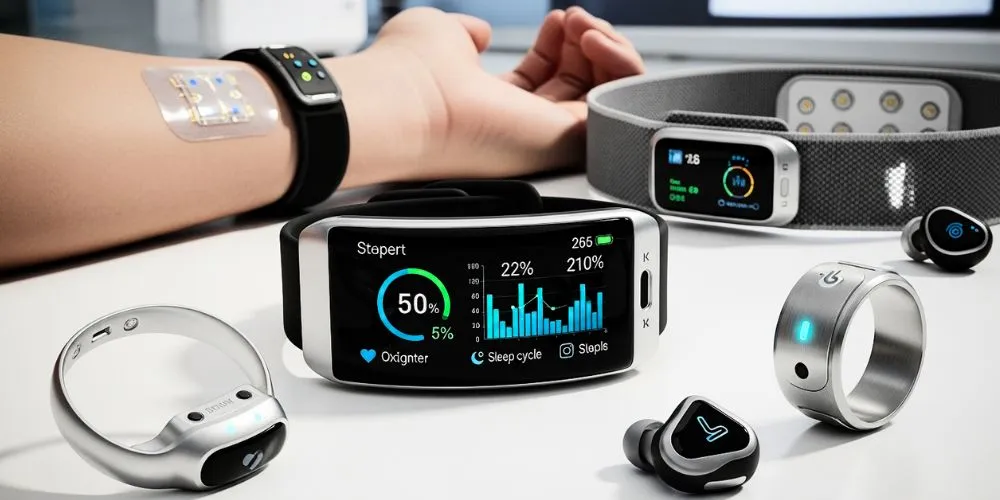In the personalized health and wellness era, wearable devices have emerged as revolutionary tools that bring healthcare to our fingertips. These devices have transformed how we approach our well-being, from tracking fitness metrics to monitoring vital signs. This article delves into the dynamic trends in wearable health devices, offering insights into their growing significance and impact.
Wearable Health Devices
Wearable health devices are excellent tools that help you stay on top of your health and wellness goals. They seamlessly merge technology with personal health management, allowing you to take charge of your health like never before. With smartwatches that monitor your heart rate and fitness trackers that count your steps, these devices provide real-time insights and data-driven feedback to help you make informed decisions about your health. Whether you’re trying to lose weight, develop your fitness level, or maintain a healthy lifestyle, wearable health devices are an invaluable resource that can help you achieve your goals.
Fitness Tracking and Activity Monitoring
Fitness wearables track physical activity, motivating users to maintain an active lifestyle. They monitor steps, calories burned, and even sleep patterns, offering a holistic view of daily health. This data-driven approach encourages users to set and achieve fitness goals, fostering a culture of wellness and improved physical fitness.
Heart Rate and Vital Sign Monitoring
Wearable devices equipped with heart rate sensors continuously monitor vital signs. This real-time data can help individuals identify irregularities and potential health concerns. These devices offer proactive monitoring and early intervention for those with existing conditions, such as heart disease or hypertension, enhancing overall cardiovascular health.
Health Insights at Your Fingertips
Wearable health devices go beyond basic tracking, offering in-depth insights into various health parameters. These devices empower users to make informed decisions about their lifestyles and healthcare routines by analyzing trends over time.
Personalized Health Recommendations
Advanced wearables use AI algorithms to analyze collected data and provide personalized health recommendations. From suggesting optimal exercise routines to advising on sleep patterns, these devices offer customized insights that help users tailor their habits to achieve optimal wellness outcomes.
Chronic Condition Management
Wearables have a profound impact on managing chronic health conditions. Diabetic individuals, for example, can use glucose monitoring wearables to track blood sugar levels. This data can be shared with healthcare providers, facilitating remote patient monitoring and allowing for timely adjustments to treatment plans.
The Future of Remote Healthcare
Wearable health devices are transforming remote healthcare delivery. Integrating telehealth services and wearable technology allows healthcare providers to monitor patients’ health remotely, enabling timely interventions and reducing the need for in-person visits.
Telehealth Integration
Wearables are pivotal in telehealth because they transmit real-time health data to healthcare professionals. This information enables doctors to monitor patients’ conditions remotely and make informed decisions about treatment adjustments. Telehealth wearables enhance patient-doctor communication and make healthcare more accessible, particularly for those in remote or underserved areas.
Early Disease Detection
Wearables equipped with advanced sensors can detect early signs of diseases. For instance, wearable ECG monitors can identify irregular heart rhythms, potentially indicating conditions like atrial fibrillation. By providing early warnings, these devices empower users to seek medical attention promptly, contributing to improved health outcomes and decreasing the burden on healthcare systems.
Conclusion
Wearable health devices are revolutionizing health and wellness. From fitness tracking to chronic condition management and even remote healthcare delivery, these devices allow for a more personalized and data-driven approach to well-being.
As technology advances, the potential for wearables to positively impact our lives by enabling proactive health management and fostering a culture of wellness is boundless. With wearable health devices, the power to monitor and improve one’s health is literally at our fingertips, changing how we navigate our well-being journey.





